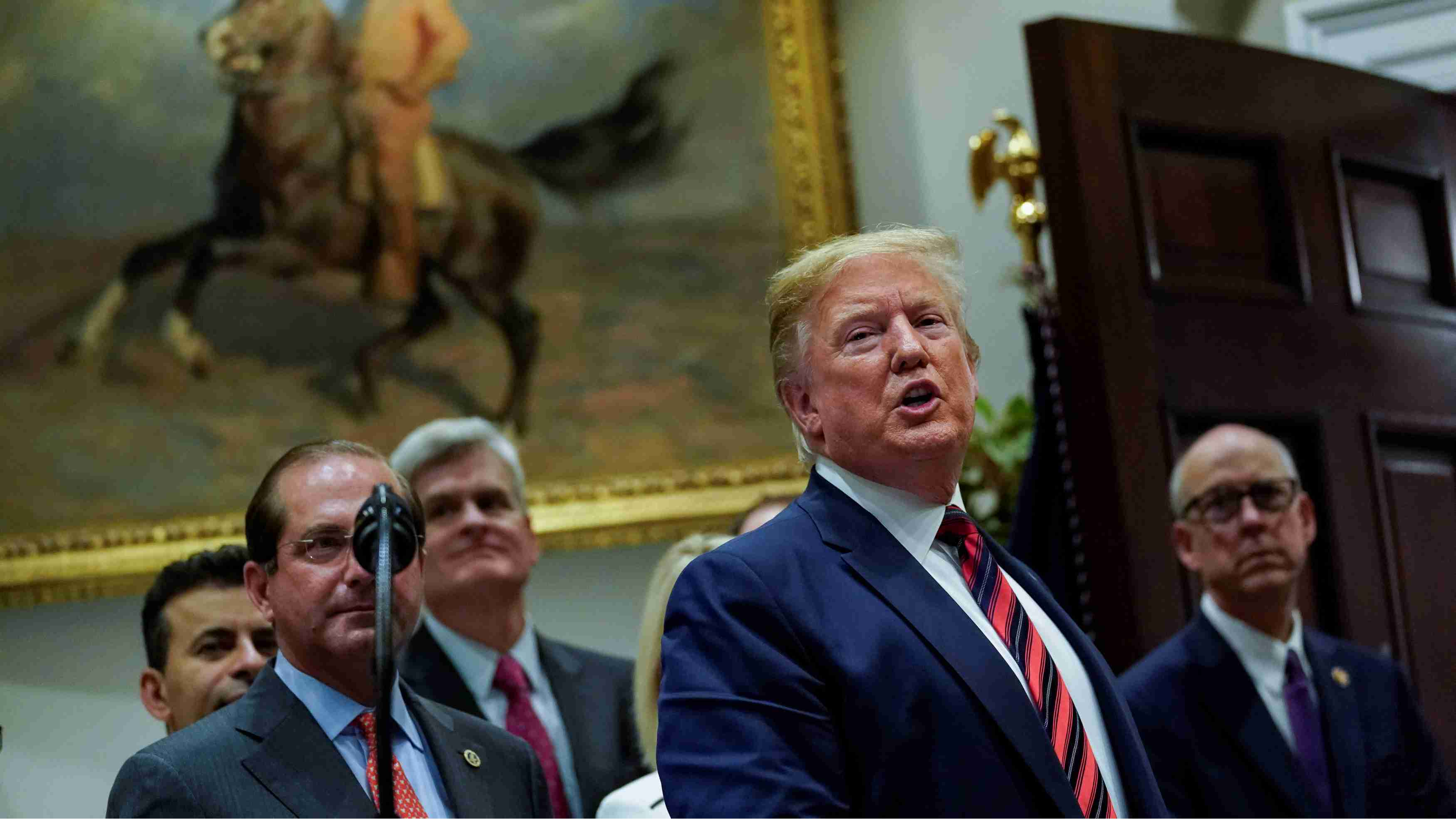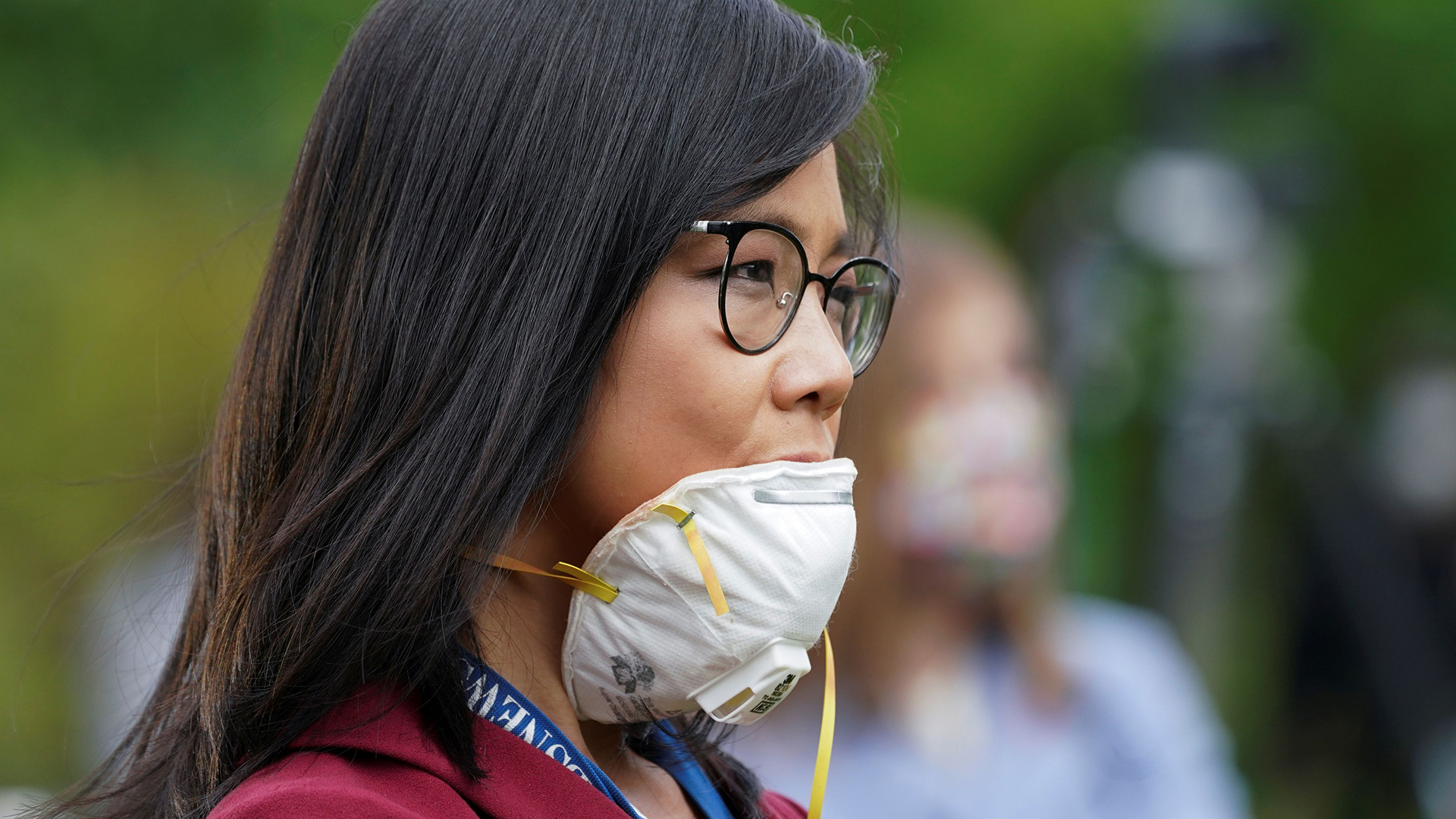
Editor's note: Mike Cormack is a writer, editor and reviewer mostly focusing on China, where he lived from 2007 to 2014. He edited Agenda Beijing and is a regular book reviewer for the South China Morning Post. The article reflects the author's opinions, and not necessarily the views of CGTN.
One of the many bizarre oddities of the Trump presidency is how immune he has been to scandals that would surely have ended the term of any other incumbent. Of course, he was impeached, and his favorability ratings have never exceeded 50 percent, unlike every president in living memory. Yet despite the staggering accumulation of scandals – with eight of his associates sentenced to jail sentences following the Mueller investigation, astonishing staff turnover and the Supreme Court currently mulling over congressional depositions of Trump's tax returns – still Trump remains in the White House, and with a decent chance of winning re-election in November. Somehow the usual political gravity does not apply to him.
But some people have an effect on Trump like Kryptonite to Superman. Some who plainly get under his skin and unsettle him. Most, accustomed to a more courteous age, find it hard to prevent him from talking over them, to counter his ceaseless lies and interrupt his more flagrant absurdities. (This is a man who thought that "Western liberalism" had something to do with Democrats in California). Trump may not have any governing or administrative qualities whatsoever, but clearly he has an innate feel for the politics of power, and how to use that to his advantage. He enjoys others being the supplicant (his dining of Mitt Romney over the position of Secretary of State was essentially to humiliate a political rival), and seeing others fights for his favor. But strong women, women who challenge him, seem to aggravate him entirely.
Normally Trump punches down, with his relentless school-yard taunts for any political rival or media opponent. He plainly enjoys his regular press conferences on the coronavirus – with barely a mention of the victims of the pandemic as the death toll keeps rising – as it offers him free TV coverage and a chance to appear statesmanlike, despite it all. (He never succeeds in doing so, but each day is a new opportunity). He also seems to relish the way he can bully media outlets, dismissing some as fake news, calling reporters losers, and mocking their employers as losing or failing. (It helps that the sound is taken from the microphone used by journalists should an exchange look unpleasant. Trump has never relished a fair fight).

Weijia Jiang, a Chinese-American journalist for CBS News.
Weijia Jiang, a Chinese-American journalist for CBS News.
But on Monday finally the tables were finally turned on him. A Chinese-American journalist for CBS News, Weijia Jiang, asked him why he so often claimed the U.S. was doing far better than any other country when it comes to testing, and why he presented it as a "global competition" when so many Americans are still dying.
"Well, they're losing their lives everywhere in the world," Trump said. "And maybe that's a question you should ask China. Don't ask me. Ask China that question, okay? When you ask them that question, you may get a very unusual answer."
He then tried to move on by calling on another female reporter, Kaitlan Collins of CNN. But where most White House correspondents are eager to have their moment in the sun, Collins let Jiang follow-up on Trump, asking him: "Sir, why are you saying that to me, specifically, that I should ask China?"
As always, Trump saw himself as the victim, criticizing Jiang for asking a "nasty question," then refusing to let Collins ask her own question. But as Collins insisted on trying to asking her question, and noting that he had called on her, Trump abruptly ended the press conference and walked off stage.
Trump's inability to handle any criticism has been well noted. Even during what should have been a friendly phone-call to Australian Prime Minister Malcolm Turnbull, Trump ended up slamming the phone down when Morrison stood up to him over a refugee agreement. But that was with a world leader: part of their job is to have a thick skin and be able to take the rough criticism that goes with the job. For Trump to castigate media reporters shows how small and petty he is. And of course it is noticeable that he wanted to pivot to China – the country he wants to make his punching-bag for the presidential election – despite the reporter Weijia Jiang being an American citizen. Trump evidently does not think that non-white Americans are truly part of the country.
But it goes deeper than that. Trump's chronic inability to handle criticism or to contemplate the idea that he might be wrong see him lash out whenever placed in that situation. Yet both of these situations are inherent aspects of leadership. But where other leaders use criticism to develop defenses for their policies or to improve on their weaknesses, and are able to work on deficiencies in their knowledge, Trump cannot. He flees the scene. And so the U.S. has a glaring void in its presidency.
(If you want to contribute and have specific expertise, please contact us at opinions@cgtn.com.)